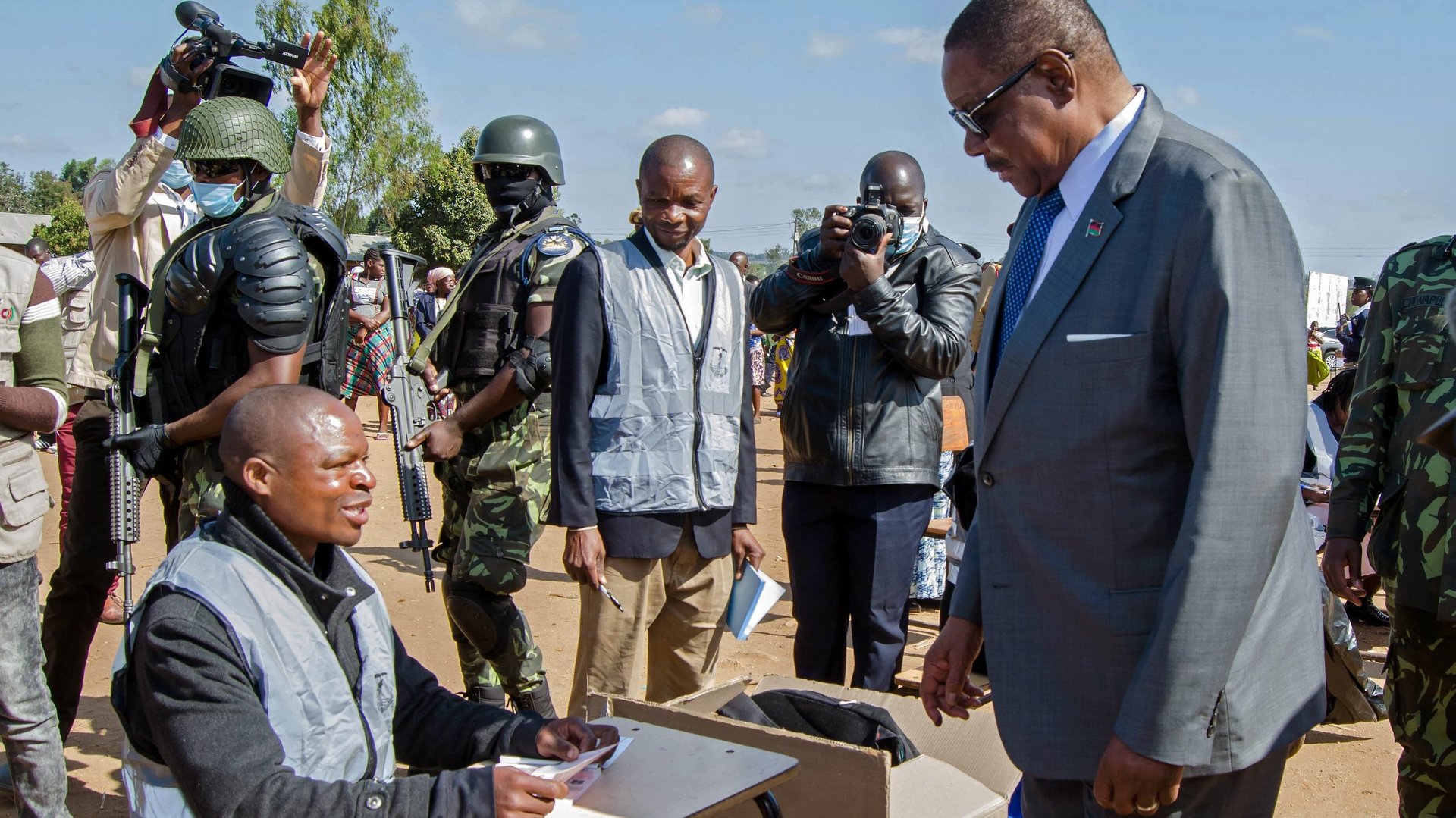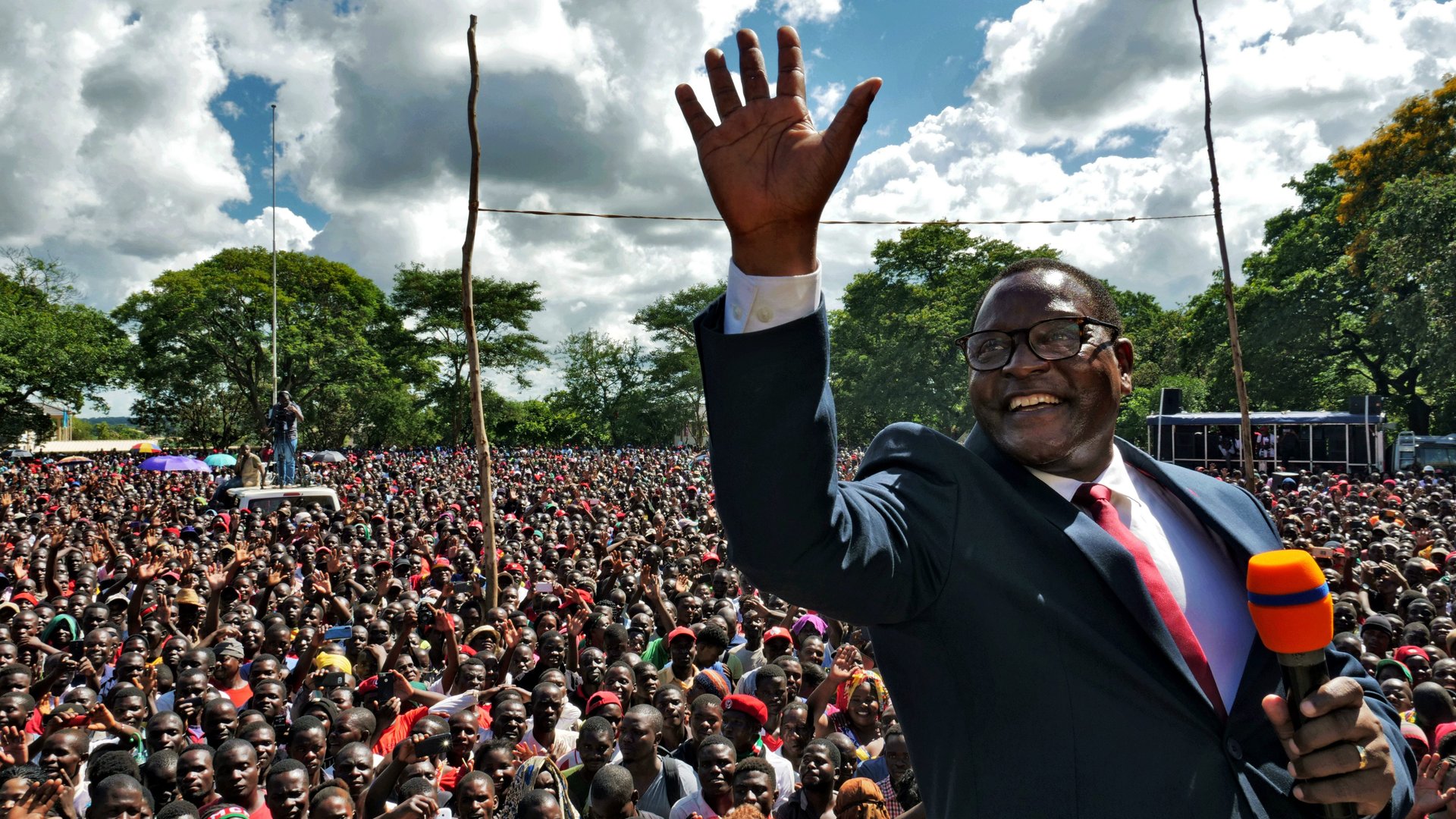Malawi’s do-over election is fraught with tensions and uncertainty amid Covid-19 fears
Polls opened across Malawi on Tuesday, in what appears to be a historic moment for the southern African country and potentially democracies across the continent. For the first time ever, the country is redoing its presidential election following the annulment of last year’s election results due to irregularities.


Polls opened across Malawi on Tuesday, in what appears to be a historic moment for the southern African country and potentially democracies across the continent. For the first time ever, the country is redoing its presidential election following the annulment of last year’s election results due to irregularities.
Ever since the Malawi Electoral Commission announced Peter Mutharika as winner in last year’s election, the political climate in the country has been tense with months of protests calling for the removal of the then Electoral commission chairperson Jane Ansah and her commissioners for incompetence.
Two opposition parties, the Malawi Congress Party and the UTM party which came second and third respectively petitioned the constitutional court to thoroughly examine the election citing serious irregularities as some voting sheets had correction fluid used to erase figures.
On Feb. 3, the constitutional court ordered the Malawi Electoral Commission to hold fresh elections citing serious irregularities in 2019. However, since the annulment, there has been a growing tension between the executive and the country’s judiciary. President Peter Mutharika, a former law professor has repeatedly expressed his dismay over the court ruling describing the verdict as a “serious miscarriage of justice” has appealed but the Supreme Court upheld the ruling.
Last week, Mutharika, who turns 80 next month, attempted to force chief justice Andrew Nyirenda to retire. The move was quickly halted by the Malawi Human Rights Defenders Coalition, Association of Magistrates and the Malawi Law Society. Mutharika’s efforts of trying to forcibly retire the judge faced widespread backlash and a protest from lawyers in the country’s major cities.
The president has also faced criticism from analysts for trying to stall the electoral process by refusing to sign bills that would have paved the way for the fresh vote and also trying to stop the adoption of the majority vote of 50% +1.
Coronavirus fears
But the redo of the election is happening at unprecedented time with the strike of Covid-19. Social distancing isn’t being observed at some polling centers in the country and few people have masks. The electoral commission advised people to bring their own pens from home used for voting to avoid contracting the virus.
In March, Mutharika declared a state of national disaster closing schools and banning large gatherings in the process as concerns around coronavirus spiked. However, despite the ban on large gatherings, political parties have been campaigning with large public rallies as usual.
The country has so far recorded 803 cases of coronavirus and 11 deaths.

Since this year’s election is being done with the electoral rule that says the winner should have a majority of 50% plus one vote, alliances have taken center stage, Mutharika’s Democratic Progressive Party has joined forces with Atupele Muluzi’s United Democratic Front. Muluzi is Mutharika’s running mate, he came fourth in last year’s election. He is the son of former president Bakili Muluzi.
On the other hand, the opposition Malawi Congress Party and UTM party who also contested on separate tickets last year have this time around formed an alliance. Lazarus Chakwera is the presidential candidate and leads an alliance of nine political parties with Saulos Chilima who is the country’s vice president as his running mate.
If the parties perform as they did last year, they would expect to gain 55.7%. In 2019 Mutharika thought he had won the election with 38.6% ahead of Chakwera who got 35% and vice president Saulos Chilima with 20%.
There are only three candidates competing, the other is little known Peter Kuwani of Mbakuwaku Movement for Development, but it’s widely expected to be a two-horse race between Peter Mutharika and Lazarus Chakwera.
Malawi is only the second African nation in recent years to redo an election over irregularities. The other country was Kenya which held it’s do-over in the October 2017.
Sign up to the Quartz Africa Weekly Brief here for news and analysis on African business, tech and innovation in your inbox